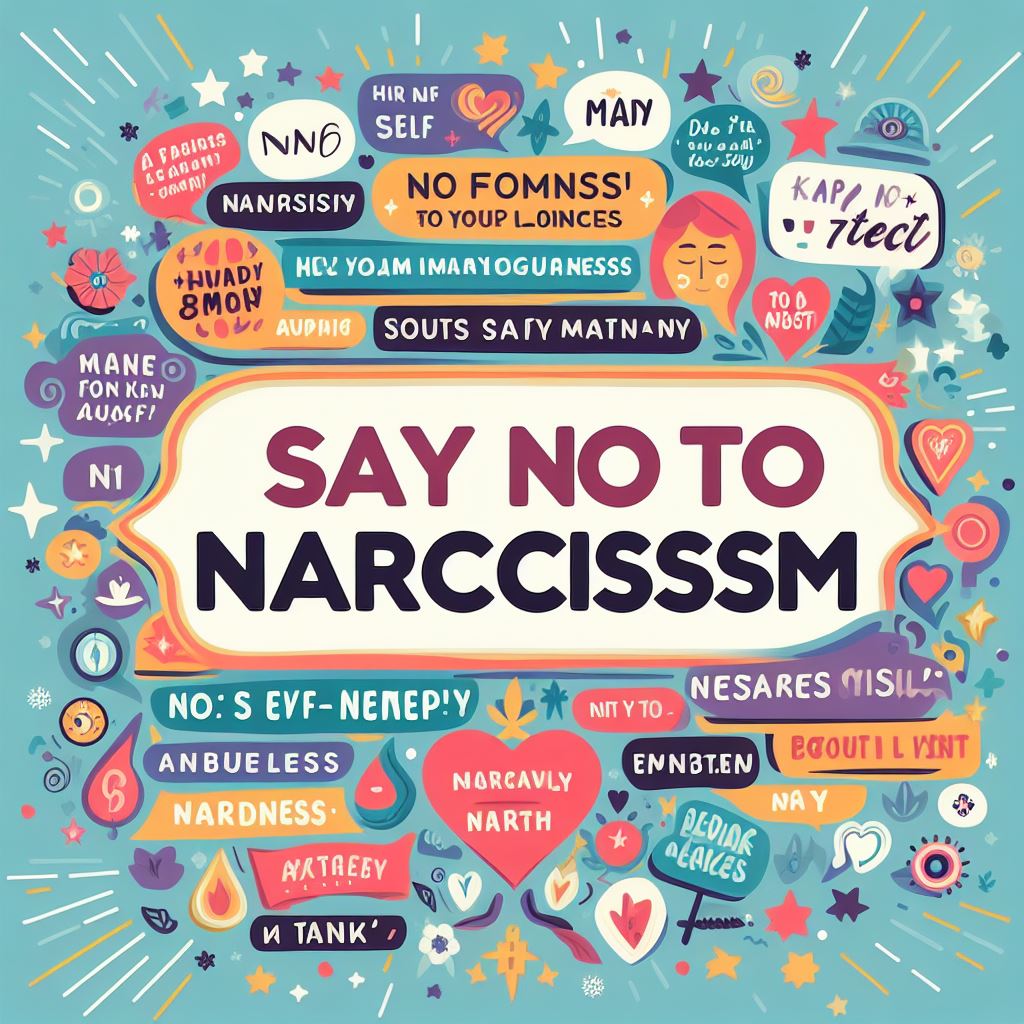Have you ever felt like you’re a minor character in the grand movie of someone else’s life, especially when dealing with a narcissist? It’s like walking on eggshells, only the eggshells are made of mirrors reflecting an ever-demanding, grandiose self-image. But what if I told you that navigating through this hall of mirrors without getting lost is possible? This article isn’t about defeating or diminishing anyone; it’s about equipping you with the insight and tools to maintain your sanity, boundaries, and personal wellbeing.
Understanding the Beast: The Narcissistic Personality
Narcissism goes beyond mere self-love or vanity. It’s a complex personality disorder characterized by an inflated sense of importance, a deep need for excessive attention and admiration, troubled relationships, and a lack of empathy for others. However, beneath this armor of self-assuredness often lies a fragile self-esteem, vulnerable to the slightest criticism.
Recognizing the Signs
- Grandiosity: Exaggeration of achievements and talents, fantasizing about unlimited success.
- Manipulation: Exploiting others without guilt or remorse for personal gain or pleasure.
- Attention Seeking: Requires constant praise and admiration.
- Lack of Empathy: Unable to recognize or identify with the feelings and needs of others.
- Envy: Believes others are envious of them or they are often envious of others.
Understanding these traits is the first step in formulating a strategy to deal with a narcissist effectively. Knowledge here genuinely is power.
Strategy One: Set Firm Boundaries
It’s crucial to establish strong, clear boundaries. Narcissists often view themselves as exceptions to the rule, which makes boundary-setting especially challenging but equally vital.
How to Establish Boundaries:
- Be Clear and Concise: Avoid ambiguity. Describe what behavior you find unacceptable and the consequences if it continues.
- Stay Calm and Assertive: Expect resistance. Remain calm and assertive, not aggressive.
- Follow Through: If boundaries are crossed, enforce the consequences. Consistency is key.
Strategy Two: Don’t Take the Bait
Narcissists thrive on reaction. Whether it’s anger, sadness, or frustration, any emotional response fuels their ego.
Techniques to Stay Neutral:
- Grey Rock Method: Make yourself as uninteresting as possible. Offer minimal responses and avoid engagement in drama.
- Practice Emotional Detachment: Visualize an invisible barrier between yourself and the narcissist’s actions or words. Their behavior speaks about them, not you.
Strategy Three: Cultivate Self-awareness
In the dance with a narcissist, you may find yourself losing grip on your self-esteem and worth.
Rebuilding from Within:
- Self-reflection: Take time for personal reflection. What are your values, and are your actions aligned with them?
- Self-care: Engage in activities that nurture your body, mind, and soul. You cannot pour from an empty cup.
- Seek Support: Surround yourself with a supportive network of friends, family, or professionals.
Strategy Four: Know When to Walk Away
Sometimes, despite our best efforts, the healthiest option is to distance ourselves from the narcissist.
Signs It’s Time to Leave:
- Continued Boundary Violation: Despite clear boundaries, the narcissist persistently disrespects them.
- Emotional or Physical Harm: You are experiencing emotional distress or physical harm.
- Impact on Mental Health: Your mental health is deteriorating.
In these cases, it’s crucial to prioritize your well-being and seek professional help if needed.
“In the presence of a narcissist, being true to yourself is the most powerful resistance.” – Anonymous
In Conclusion: Mastering the Art of Narcissist Navigation
Dealing with a narcissist may never be easy, but with the right strategies, it can become manageable. Setting firm boundaries, not taking the bait, cultivating self-awareness, and knowing when to walk away are your tools in this journey. Remember, it’s not about changing the narcissist – it’s about empowering yourself to deal with their behavior effectively. Stay true to yourself, and you’ll find your way through the maze.
here are some interesting articles on health and wellness
FAQS
- What defines a narcissist and their behavior patterns?
- Are there different types of narcissists?
- How can I recognize if someone is a narcissist?
- What are the common tactics narcissists use to manipulate others?
- Is it possible to have a healthy relationship with a narcissist?
- What are the psychological effects of being in a relationship with a narcissist?
- Can narcissistic behavior be changed or treated?
- How do narcissists react when they feel threatened or challenged?
- What are some effective strategies for setting boundaries with a narcissist?
- How can I maintain my self-esteem and self-worth when dealing with a narcissist?
- What role does empathy play in dealing with narcissists?
- How can I communicate effectively with a narcissist without being manipulated?
- Are there warning signs that indicate I may be in a relationship with a narcissist?
- What are some practical tips for disengaging from a relationship with a narcissist?
- How do I protect myself emotionally from the effects of narcissistic abuse?
- Are there support groups or resources available for individuals dealing with narcissistic relationships?
- Can therapy help individuals cope with the trauma of being in a relationship with a narcissist?
- How do I rebuild my life after leaving a relationship with a narcissist?
- Are there legal options available for dealing with narcissistic behavior, especially in cases of abuse?
- What are some red flags to watch out for when dating to avoid getting involved with a narcissist?
- How do narcissists typically respond to criticism or confrontation?
- Can children be affected by having a narcissistic parent, and if so, how?
- What are some self-care practices that can help me maintain my well-being while dealing with a narcissist?
- How do cultural and societal factors influence narcissistic behavior and perceptions?
- What are some effective ways to cope with gaslighting from a narcissist?
find more about narcissist here
